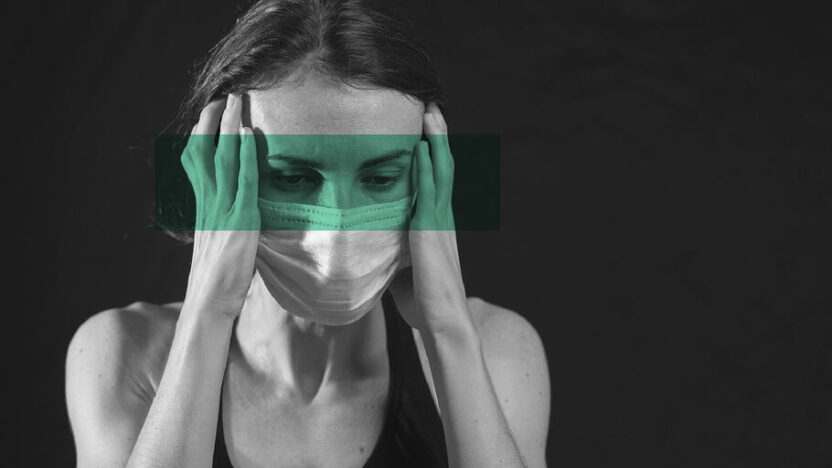
In the wake of global health challenges, our daily lives and the way we understand personal well-being have been profoundly transformed. This article explores the post-pandemic mindset and examines how mental health has evolved amid unprecedented challenges. Struggles with anxiety, isolation, and uncertainty are common, but evolving mental health perspectives now offer practical solutions to navigate these turbulent times. By addressing these issues head-on, we provide insights and strategies to help you regain balance, understand your emotions, and build lasting resilience. Join us as we explore essential changes in mental health and discover strategies to turn adversity into opportunity.
Emerging Realities in Mental Health Post-Pandemic
The post-pandemic era has brought significant shifts in how we perceive, address, and manage mental health. No longer confined to clinical settings, mental health is now a mainstream topic, woven into everyday conversations. The collective experience of isolation, fear, and loss has paved the way for deeper introspection and a public dialogue about well-being.
Personal stories shared across news headlines, workplaces, homes, and online communities illustrate both struggle and recovery. These narratives are not only cathartic but are also catalysts for societal change. They foster a willingness to challenge stigma and promote a more empathetic approach to mental health issues.
This increased focus is prompting institutions to reexamine their support structures. Schools, companies, and governments are now working to integrate psychological support into their frameworks. Emerging policies underline that mental health is a fundamental pillar of overall quality of life. Understanding these new realities is imperative for navigating both personal and societal changes.

Essential Changes in the Mental Health Paradigm
Traditional views on mental health are being redefined in a post-pandemic world. One fundamental shift is the recognition of mental health care as a necessity rather than a luxury. The pandemic has accelerated changes in perception, leading to a broader acceptance and integration of psychological services in daily life.
With more open discussions, innovative approaches in mental health care delivery have emerged. This paradigm shift encourages us to move away from stigmatization and embrace vulnerability as part of the human experience. Mental health is increasingly seen as essential to a healthy lifestyle, closely linked with physical, social, and emotional well-being.
This new framework has been strengthened by professionals in psychology, psychiatry, and counseling who are reimagining treatments to meet the growing demands of society. With an emphasis on preventive care, early intervention, and holistic treatment, mental health is now recognized as a critical indicator of overall societal health.

Integrative Therapy Approaches
Modern mental health strategies now combine classic psychotherapy with alternative treatments such as mindfulness, meditation, and complementary practices. Recognizing that mental health is multifaceted, these approaches offer tailored and diverse interventions.
As more individuals turn to integrative therapies, the outdated stigma surrounding mental health care continues to fade. Communities actively celebrate these innovative methods, encouraging others to explore therapies that best resonate with their personal experiences.
Preventive Mental Health Measures
Prevention is taking center stage in today’s mental health discourse. Many professionals now advocate for regular mental health check-ups—similar to annual physical exams—to detect subtle signs before they develop into major issues.
Regular therapy sessions, community support groups, and mindfulness practices are increasingly recognized as essential preventive measures. These proactive steps help reduce severe mental distress and foster a culture centered on well-being.
Digital Transformation and the Rise of Teletherapy
Digital transformation has transformed mental health care since the pandemic. With social distancing and lockdowns, traditional face-to-face therapy became challenging, prompting a rapid shift to online alternatives.
Teletherapy, once considered secondary, has now become a primary resource. It enables individuals to connect with mental health professionals from the safety and comfort of home, reducing access barriers and broadening mental health services.
Innovative teletherapy platforms now offer secure, reliable, and personalized care that rivals in-person sessions. This evolution not only enhances access but also demonstrates how adaptable mental health services can be when faced with unprecedented challenges.

Societal and Economic Factors Affecting Mental Health
The pandemic’s sweeping effects have reshaped not only our personal well-being but also the societal and economic landscapes. An increasing awareness of the links between financial insecurity, employment instability, and mental health is emerging worldwide.
Economic uncertainty, job losses, and disrupted careers have further amplified stress. Studies by organizations such as the World Health Organization show a strong correlation between economic downturns and rising mental health issues like anxiety and depression. These findings fuel larger discussions about systemic reform and mental health support.
In response, government agencies and private institutions are directing more resources to mental health initiatives. From public awareness campaigns to community-based mental health programs, these efforts address broad societal challenges through a comprehensive approach, critical for post-pandemic recovery.
Community Support Initiatives
Local governments and non-profit organizations are swiftly implementing programs that address grassroots mental wellness needs. These initiatives are designed to generate sustainable change at a community level.
Efforts include community counseling sessions, public workshops, and crisis hotlines, all aimed at offering immediate support and long-term guidance.
Economic Recovery and Mental Health Funding
Investing in mental health is increasingly seen as a key element of economic recovery. Financial aid and targeted grants for mental health services expand outreach and foster innovative care strategies.
This synergy between economic measures and mental health funding underlines the belief that robust mental health support is crucial for cultivating a resilient, adaptable workforce—and a healthier society overall.
Strategies for Building Post-Pandemic Resilience

Adapting to a post-pandemic world requires strategies that build resilience against future challenges. On an individual level, cultivating resilience means taking a proactive approach by integrating balanced routines, self-care practices, and community engagement into daily life.
Educational campaigns, corporate wellness programs, and local support initiatives are vital for spreading practical tips to counteract uncertainty. Resilience is not a fixed trait, but a skill that can be continually strengthened with commitment and the right strategies.
Evidence-based practices such as regular exercise, maintaining healthy social connections, and practicing mindfulness form a powerful toolkit to manage stress. Mental health professionals encourage small, consistent changes that yield significant long-term benefits.
In summary, the post-pandemic landscape has profoundly reshaped our approach to mental health, underscoring the need for continuous support and innovation. The new paradigm—characterized by enhanced care models, digital advancements, and community-based initiatives—better equips society to address lingering psychological effects. The journey toward recovery is ongoing, yet by adopting resilient practices and nurturing broader support systems, we pave the way for a more mentally healthy future.
Embracing these changes
is not only a personal achievement, but a collective step toward building a more compassionate world. In this extended discussion, it is important to revisit the historical context that laid the groundwork for these transformative changes in mental health care. Past eras, marked by limited dialogue on emotional well-being, often left many feeling isolated and conflicted. Today, modern psychology draws on these lessons while embracing progressive methods to address mental health holistically. A key element in this evolution is the integration of technology into therapeutic practices. The rapid adoption of digital tools has not only increased accessibility but has also enriched the patient experience through customizable care. Virtual therapy platforms now offer digital diaries, progress trackers, and interactive self-assessment tools, enabling users to monitor their mental state over time.

Studies show that these innovations contribute to improved outcomes, especially for individuals managing chronic conditions or anxiety disorders. Moreover, the rise of online support groups and mental health communities has strengthened collective resilience worldwide. By sharing experiences and resources online, these communities create networks that transcend geographical barriers. They foster an environment where vulnerability is met with empathy, reinforcing that mental health challenges are a shared human experience worthy of professional attention. Public policy is also playing an increasingly important role. Recognizing the long-term effects of the pandemic, governments are reforming legislation to enhance mental health infrastructures through research funding, expanded access to professionals, and workplace stress reduction policies. Concurrently, private sector initiatives—such as comprehensive corporate wellness programs offering mental health days, confidential counseling, and stress management workshops—are evolving to support employee well-being. On a personal level, the post-pandemic era has spurred a movement toward self-care practices that promote balance and fulfillment beyond professional demands. Techniques like meditation, journaling, and regular exercise are being embraced as effective methods for mitigating stress and building long-term resilience.
The key takeaway is that mental health is a dynamic journey that requires ongoing self-improvement and introspection. Finally, the intersection of mental health and culture enriches our understanding of psychological resilience. Diverse cultural perspectives contribute to more nuanced, tailored approaches that respect individual differences. By embracing a global viewpoint, mental health practitioners can customize interventions that resonate across varied backgrounds, making care both inclusive and effective. In conclusion, as we move further into the post-pandemic era, continuous education, support, and innovation in mental health care remain paramount. This shift towards a more open and integrated understanding of mental health promises a future where everyone has the opportunity to thrive emotionally, regardless of challenges.




